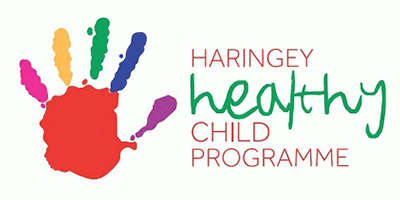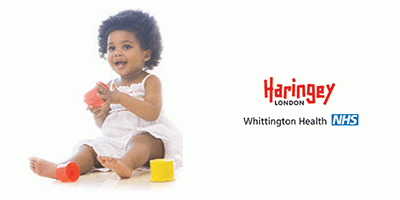Healthy Child Programme: secondary school
- Help for you and your child as they get older
- Vaccinations at secondary school
- Sexual health and relationships
- Free period products
- Keeping safe
- Emotional health and wellbeing
- Alcohol and substance misuse
- Staying healthy
Help for you and your child as they get older
The Healthy Child Programme promotes children's health and development by offering support and information to children and families in Haringey.
The section of the programme aimed at 5 to 19-year-olds is led by school nursing services from Whittington Health NHS Trust (external link), working in partnership with Haringey Council.
See information and support if your child is still at primary school.
Vaccinations at secondary school
Your child will receive 3 vaccinations at secondary school. These will be provided for free by Vaccination UK, which administers vaccinations in Haringey schools on behalf of NHS England. See our school-aged vaccinations page for more information.
If your child has missed a previous vaccination or is absent on the day they're due to receive a vaccine, they can visit a catch-up clinic. See Haringey catch-up clinics (external link) or contact appointments@v-uk.co.uk
Contact your GP to find out which vaccinations your child may have missed.
Timings of secondary school vaccinations:
- Year 8: HPV vaccine
- Year 9: 3-in-1 teenage booster
If you or your child have any questions about these vaccines, your school nurse will be able to help. Email The School Health Team at whh-tr.HaringeySchoolNursing@nhs.net
Or check out the vaccinations information on the NHS website (external link).
Sexual health and relationships
Young people may have questions about intimate relationships and reproductive health. If they feel comfortable, they can visit their GP with or without a parent/carer. The GP will be able to offer some sexual health services, including testing for sexually transmitted infections (STIs), HIV testing, free condoms and long-acting contraception.
There are 2 sexual health clinics in Haringey specifically for teens and young people, with a specialist drop-in for under 19s. There they can be tested and treated for STIs, receive HIV testing, pick up free condoms and contraception and receive confidential sexual health advice.
For more information see our young people's sexual health clinics page.
If a young person doesn’t feel comfortable visiting a sexual health clinic or their GP, they can visit a Healthy Living Pharmacy. Services available include chlamydia andgonorrhea testing, chlamydia treatment and emergency hormonal contraception.
Your child can also email the School Nursing team at whh-tr.haringeyschoolnursing@nhs.net
Free period products
Haringey Council has teamed up with Tricky Period to provide free sanitary products for anyone that needs them. These can be collected from all libraries across Haringey.
Period products such as pads and tampons will also be available for free in all state-maintained schools and 16 to 19 education organisations in England.
Keeping safe
Violence against Women and Girls (VAWG)
It is important children and young people know what a healthy relationship is and recognise if they're in a relationship which is causing them or someone else harm.
VAWG is considered to be any act of violence that results in, or is likely to result in, physical, sexual or psychological harm or suffering to women. These include threats, being forced to do something or restrictions imposed on them by others.
Children and young people can speak to someone confidentially by contacting specialist organisation nia:
- Web: nia website (external link) | tel: 0300 012 0213
Or they can contact The National Domestic Violence Helpline (external link) to talk with someone.
Anyone in immediate danger should call the police on 999 straight away.
For more information, see our Getting help for VAWG page.
Online safety
The online world can sometimes put children and young people at risk of harm and exploitation, especially those who are vulnerable. It's important your child knows how to stay safe online and recognise if they're being groomed or coerced into doing something they aren’t comfortable with, such as sending nude images.
- General information about online safety and a button to report online abuse is available at ThinkUKnow (external link)
- The NSPCC has an online safety area (external link) with advice for parents on a wide range of subjects, including live streaming and gaming
Staying safe in the community
Haringey is committed to tackling serious youth violence in the borough.
Serious youth violence includes crime using a weapon, such as knife crime, but isn't limited to this. Most of this violence is associated with gangs, and in Haringey, there are several rival gangs.
There are many consequences to serious youth violence. Those affected could be the victim, leading to mental health issues, further involvement in gangs or even death. A significant proportion of people in gangs also have mental health issues, such as depression and Post Traumatic Stress Disorder (PTSD). A large proportion of both victims and perpetrators have experienced violence and trauma in their childhood.
Young people and vulnerable adults can easily be exploited or coerced by gangs to carry and sell drugs across borough or country boundaries.
The NSPCC has information on grooming and recruitment into gangs (external link).
Emotional health and wellbeing
Just like our physical health, our mental health can fluctuate on a daily basis, from feeling healthy to being unwell. Having good mental health as a child can help to increase the likelihood of having good mental health as an adult, enabling children to fulfil their potential.
Teenagers have many stressors in their lives which can impact their mental health. These include exam stresses, problems at school or college, friendship and relationship issues. They may also experience personal anxieties related to their body. Having access to good mental health services can help alleviate these problems.
Haringey has a range of online and face-to-face services to help children and young people.
- Kooth (external link) is a free online counselling and emotional wellbeing support service for all 11 to 18-year-olds in Haringey. It can also help those aged up to 25 from specific groups, such as if they have special needs.
- Open Door (external link) is a free, confidential counselling and psychotherapy service for 12- to 24-year-olds living in Haringey.
Telephone: 020 8348 5947. - CHOICES (external link) offers support to children and young people in Haringey up to 17-years-old, and their families, who are worried about their emotional wellbeing.
- Young Minds (external link) offers advice on where to get urgent help and advice on their mental health for children and young people.
- MIND in Haringey (external link) can help young carers or those who have recently left care, to become self-sufficient. It provides programmes to help children and young people develop skills, build confidence and improve self-esteem.
More information on mental health services offered in Haringey to children and young people
Alcohol and substance misuse
- Insightful Families provides support to children, young people and families affected by alcohol dependence. It offers tailor-made support for those aged from 12 to 21 years and a range of free and confidential services
- HAGA (external link) offers support to families in recovery from drugs and alcohol dependency
Staying healthy
Physical activity
It’s important for children and young people to get at least 60 minutes of moderate-intensity exercise a day. This should be a mix of exercises which get the heart rate up, and those which strengthen muscles and bones.
Examples of moderate-intensity exercises are walking, riding a cycle, skateboarding, running, playing a sport such as tennis or basketball, weightlifting and aerobics.
If we start exercising on a regular basis at a young age, it will help build muscle mass and strengthen bones, reducing the risk of developing conditions such as osteoporosis, heart disease, diabetes and stroke later in life. Regular exercise can also boost self-esteem, mood and sleep quality, as well as improve concentration. It has even been shown to improve academic results.
In Haringey, there are over 30 parks and greenspaces, some of which have free gym equipment. There is also a wide range of sports and activities available for children and young people in Haringey.
Healthy eating
Growing bodies need to eat a variety of healthy food, including fruit, vegetables and whole grains. Children and teenagers should drink water instead of sugary drinks like sports or fizzy drinks.
Everyone needs enough calories to keep their bodies running well. Extreme low-fat diets can also be bad as we all need fat in our diet, so watch out if your child appears to be cutting back on important foods.
Eating breakfast helps jump-start the metabolism, curb cravings for sweets throughout the day and provide energy. It can help your child focus better in school or at work, so encourage them to eat something with whole grains and protein.
More information on healthy eating and recipe ideas (external link).


